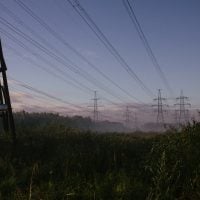Deadline: 3-Jul-22
The Asia Pacific Forum on Women, Law and Development (APWLD) invites women migrants, migrants’ groups, organisations and trade unions in Asia and the Pacific to take part in the Migration Feminist Participatory Action Research (FPAR) that aims to strengthen the evidence-based advocacy and orgainsing power of women migrants and their organisations.
APWLD will also support the young women researchers and their mentors to participate in capacity building workshops and provide advocacy or network opportunities. Six to eight partner organisations will be selected to work with APWLD for 15 months (2022 – 2024) to investigate the impacts of COVID-19 pandemic on migrant communities, in particular on the right of women migrants and their organisations to organise and form their association, as well as the consequences of COVID-19 on their right to decent work and work conditions in migrant communities.
Objectives
- Overall Objective
- To advance the human rights of women migrants and strengthen the migrant movements in Asia and the Pacific by increasing women migrants’ capacity to author evidence-based community research and be vocal and effective policy advocates for women’s human rights and Development Justice.
- Specific Objectives
- Develop the capacity of women migrants and their organisations to research and document evidence and thereby, engage in decision-making processes on women migrants’ human rights at local, national, regional and international levels;
- Foster knowledge and resources on human rights of women migrants, FPAR framework, methodology and feminist community organising tools;
- Establish strategic advocacy plans and opportunities to share evidence-based results and support women’s own positions and solutions for policy change; and
- Strengthen institutional development of sub-grant partner organisations through leadership development and movement building.
Focus Areas
The FPAR will focus on the impacts of COVID-19 pandemic on migrant communities, in particular on the right of women migrants and their organisations to organise and form their association, as well as the consequences of COVID-19 on their right to decent work and work conditions in migrant communities:
- Right to organise and freedom of association. The increased hostility and legal restrictions on freedom of association has further increased the vulnerability of migrants and their advocates to exploitation and abuse in the workplace. The lack of representation at unions, organisations, as well as the policy decision making space has narrowed the options migrants have to protect their rights. This FPAR aims to document the actions and strategies that women migrants and their organisations have taken to defend and advance their human rights, especially in understanding the ways migrants and migrant rights defenders organise differently to overcome the systemic challenges in exercising their right to freedom of association.
- Right to decent work. This FPAR aims to investigate the labour rights conditions of women migrants under the four pillars of decent work agenda: employment creation; social protection; rights at work, and; social dialogue. As the COVID-19 pandemic has exacerbated the existing inequalities in the world of work , they intend that this FPAR can examine how women migrants are impacted in exercising their right to decent work.
Funding Information
- APWLD will provide the selected organisations with a small grant to employ a young woman researcher and carry out the research including salary and on-costs with the maximum amount of US$ 14,000.
- Research partners will need to appoint a mentor to assist the young women researcher throughout the FPAR process.
Eligibility Criteria
- APWLD will select women migrants organisations who will lead the FPAR on human rights of migrants in Asia and the Pacific.
- They are seeking non-governmental, non-profit, local or national groups, organisations, and trade unions.
- APWLD will consider the following when selecting the organisations for this process:
- Sub-regional representation;
- Recommendations/ references from APWLD members;
- Diversity of migrants rights issues, concerns and advocacy priorities of women migrants groups, organisations and trade Unions in Asia and the Pacific.
For more information, visit https://apwld.org/migration-fpar-2022-2024-2/









































